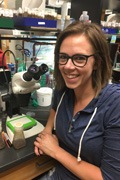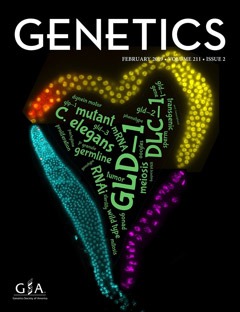2025 Election Candidates and Ballot
To cast your vote, you will need to log in at the link below using your GSA membership email address and password. You will receive an email confirming your ballot has been submitted (please check the spam folder). If you have technical difficulties, email society@genetics-gsa.org.
Deadline to vote: November 30, 2025, 8:59 p.m. EST.
Candidate Statements and Biographical Information
Read each candidate’s statement and biographical information at the links below. Return to this list using the “Return to Top” links.
Directors
Vote for one in each section
Director 1
Director 2
Director 3
Chris Hittinger
Jeffrey Ross-Ibarra
Vice President Candidates
David Greenstein
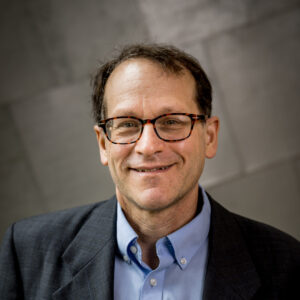
Professor, Genetics, Cell Biology, and Development, University of Minnesota
Candidacy Statement
I am deeply honored to be a candidate for the position of Vice President of the Genetics Society of America (GSA). Now is a critical time to be a geneticist. Life on Earth faces inordinate challenges, and our species faces existential threats largely of our own making. Although genetics and genomics will not provide all the needed solutions, our discipline will continue to have major impacts for medicine, agriculture, education, and the understanding of our humanity. For the foreseeable future, genetics will remain the fundamental biological science. Genetics is conducted by geneticists and a major priority for the GSA should be the training and mentorship of the next generation to ensure the heritability of our collective scientific endeavors. I believe priorities should be recruiting, mentoring, training, and promoting the careers and professional development of the next generation of geneticists worldwide. An essential part of this effort will be to knock down barriers that have limited past efforts to build a vibrant worldwide community. An important part of this effort will be to keep GSA meeting programming thriving, inclusive, and highly relevant from the standpoint of fostering scientific progress and career development.
To be clear, our field, and science in general, is facing serious challenges that are limiting the potential impact of our discipline for bettering our world. I would like to see GSA play a more central role in advocating for our discipline at a national and global level. I want to maintain GSA as a stable “home” and source of information to help our members address the challenges we are all facing in the current climate in which science is conducted. I think GSA has an important role to play in effectively communicating to the public to improve scientific understanding and in advocating for public support of fundamental research. An effective way to achieve this goal is by partnering with other professional societies (e.g., AAAS and FASEB). In addition, the complex landscape of scientific publishing is another looming issue for the society. I have confidence that the ongoing efforts to adapt to the evolving publishing climate by expanding the scope and impact of our Journals will ultimately prove successful because of the importance of peer-edited society journals. Having served on the Finance Committee, I have observed that the prior GSA leadership has well positioned the society. Yet, we face financial headwinds that could impede our abilities to achieve our common objectives. Beyond GSA’s usual revenue streams, I hope to expand the scope of our fundraising efforts beyond our current membership. I see many opportunities for the society to expand the value provided to our members and the public by promoting community building, career development, and fostering a culture that broadens the reach and impact of our Journals, meetings, and scientific contributions.
I am seeking this role to represent our community as a developmental geneticist with a broad range of experience. My research program is focused on understanding the genetic control of germline development in C. elegans. I am passionate about teaching and mentoring. In addition to teaching an advanced course in genetics and genomics to graduate students, I direct two National Institutes of Health funded training programs: a predoctoral T32 training program in genetics and genomics and the Minnesota IRACDA Program, which is a collaboration between the University of Minnesota and nearby community colleges. My administrative experience comes from serving as the Associate Dean for Research and the Interim Dean at my institution. My leadership vision is to embrace collective and consultative governance models. I have taken on administrative roles while running an active research laboratory and remaining active at the bench myself. I have had a long-standing commitment to GSA over the course of my career, and I have served GSA in several capacities: I have been a member of the editorial board of GENETICS since 2006; I chaired the search committee for the Editor-in-Chief of GENETICS; and I served as the Secretary of the Society from 2016 to 2018. As GSA Secretary, I played a key role in establishing the GSA Journal’s Peer Review Training Program, and I have served on several influential committees, and I am currently serving as a member of the Finance Committee. I am enthusiastic about continuing to work with our community to advance GSA’s missions in promoting support for research, education, advocacy, and outreach. If selected for this role, I want to listen to the needs of scientists today, understand the challenges our members face, and work with GSA colleagues and members of our community to promote the collective success of genetics research and education.
Education
PhD (1989) – The Rockefeller University
BA in Chemistry and Biochemistry (1983) – University of Pennsylvania
Research Interests
My research program focuses on understanding the control of germline development in the nematode Caenorhabditis elegans. One focus has been understanding the control of oocyte meiotic maturation and the oocyte-to-embryo transition by focusing on the roles of gametic interactions, soma-germline interactions, and translational regulation. My laboratory showed that the major sperm protein, which is the central cytoskeletal element underpinning the amoeboid locomotion of nematode sperm, also functions as a hormone for oocyte meiotic maturation. We identified the LIN-41 TRIM-NHL protein as the chief determinant of the extended meiotic prophase of C. elegans oocytes and utilized biochemistry and genomics to define its mechanisms of action. We showed that soma-germline gap junctions are a central organizing feature of germline development controlling germ cell proliferation, gametogenesis, and the integration of nutritional signals essential for reproduction. More recently, together with our collaborators, we defined a sperm oocyte protein partnership required for egg activation and defined a molecular mechanism for early maternal mRNA clearance. I run my laboratory like an artists’ colony for scientists in that lab members are given independence and space for creativity so that the best ideas can emerge. This approach also extends to my general leadership style.
Tin Tin Su
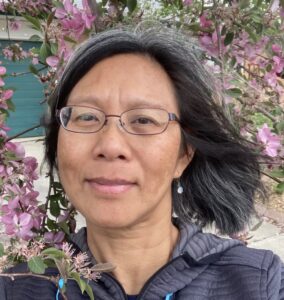
Professor, Molecular, Cellular and Developmental Biology, University of Colorado, Boulder
Program Leader, Molecular and Cellular Oncology Program, University of Colorado Cancer Center
Candidacy Statement
The Genetics Society of America (GSA) has provided me with a scientific home across my career, and it is to repay for all the support I have received that I would like to serve as the GSA Vice President. Trained as a student in biochemistry, it wasn’t until I began my postdoc with Pat O’Farrell at the University of California, San Francisco that I saw my first fruit fly under a microscope. What an intimidating experience—so beautiful and yet so many moving parts! My first GSA Conference, an Annual Drosophila Research Conference, was similarly intimidating. But I kept going back because I increasingly felt that I belonged. I felt supported and heard. I felt my trainees could get the support they needed. I know now that GSA does much more than run conferences. I am grateful for its efforts to give geneticists a voice, to keep lines of communication open through journals and conferences, and to advocate for geneticists of all backgrounds and career stages. This is increasingly important in an era where the future of scientific research is more tenuous than ever.
My own journey began in Burma and high school in India before coming to the U.S. for college, providing me with an unusual perspective that I draw on to promote science and training at local and national levels. I have taught undergraduates for more than 25 years, published research papers on pedagogy, and designed and implemented courses that use Drosophila to provide undergraduate research experience. In my role as the departmental Director of Graduate Student Affairs, I shepherded our graduate students through the challenges of pandemic lockdowns. In my role as a Program Leader for the University of Colorado Cancer Center, I foster and promote over 70 labs with research programs that span mitosis in budding yeast and mitophagy in C. elegans to acute myeloid leukemia. In the Drosophila community, I have co-organized Fly Meeting workshops, served on the Larry Sandler Award Committee, chaired the organization committee for the 2018 Fly Meeting, and served as the President of the Drosophila Board. I advocate model organism research during NIH grant reviews; my sixth stint as a study session chair is upcoming later this year.
Just as the intimidating but compelling experiences of my first Fly Meeting ignited my drive to be part of the GSA community, I was similarly inspired when I was elected GSA Treasurer and to the Board of Directors in 2023. Through this experience, I have gained a familiarity with our revenue streams and assets and have learned from and worked with capable and dedicated GSA Staff. I have also seen first-hand challenges we face as the publication landscape continues to evolve, funding for research and resource centers is more precarious than ever, and even the process of scientific investigation and the knowledge it produces are being questioned. If elected, I will bring my abilities guided by experience to the GSA Vice President position, for which I am honored to be considered.
Education
PhD in Biology (1991) – Carnegie Mellon University
BA in Biochemistry (1984) – Mt Holyoke College
Research Interests
The goal of my lab is to understand how cells, tissues, and organisms survive exposure to high energy radiation such as X-rays. We use Drosophila in our studies because it is a good model for human biology. A particular area of interest is cellular plasticity after radiation damage. We identified a subset of epithelial cells in the Drosophila larval wing disc that can change their identity to help replace another cell type lost to radiation damage. Using a combination of genome-wide analyses and tissue-specific knockdowns, we are discovering new mechanisms that allow cell fate plasticity during regeneration. One of the mechanisms we identified involves an unexpected, non-lethal role for apoptotic caspases. Current efforts are aimed at understanding how some irradiated cells manage to activate apoptotic caspases without dying and what their substrates are in the context of regeneration. In parallel to these studies, we use Drosophila larvae for drug discovery, specifically for chemicals that prevent regeneration after radiation damage. Such agents have the potential to prevent tumors from growing back after radiation therapy. A patented molecule discovered in a Drosophila screen in my lab is nearing human clinical trials. Finally, a new interest in my lab is the effect of environmental toxic heavy metals on the genome. Toxic metals such as lead and cadmium have been studied extensively, but usually on their own even though they co-exist in mixtures in the environment. We are using Drosophila and human cells to assess whether mixtures of toxic metals show effects that are different from what we expect from a simple sum of the effects of individual metals. What we are learning helps us rethink what “safe” levels of heavy metals in the environment are.
Treasurer Candidates
Jay Dunlap
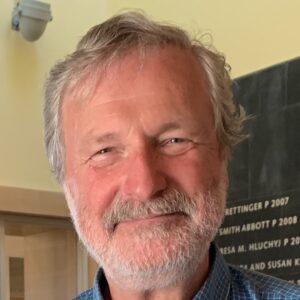
Professor, Molecular and Systems Biology, Biochemistry and Cell Biology, Dartmouth
Candidacy Statement
When I was named as chair of a new Department of Genetics at the tender age of 47, I sought counsel from veterans of the Chair vs. Dean wars. The best advice I got was immediate, visceral, and succinct: “It’s all about money.” Two decades as a chair repeatedly confirmed this truth. While plans and vision are surely important, and money may not be both necessary and sufficient, sufficient funding remains necessary for prosecution of any plan or pursuit of any vision. From my time on the Genetics Society of America (GSA) Board of Directors and more recently on the Publications Committee, I anticipate financial challenges on the horizon for GSA; I believe I have the experience, and hopefully the wisdom, to help ease these burdens.
As GSA Treasurer, I would Chair the Finance Committee as well as serve on the GSA Executive Committee and Board. These are different tasks, so let’s look at them separately.
Finances: I’ve run a lab for four decades and chaired a department for two decades before helping to recruit my replacement. As many of us know, running a lab is much like running a small business—meet payroll, keep up productivity while producing a consistently high-quality product, and market this as widely as possible. In addition to running a lab and department, I was PI on a Program Project from NIGMS that ran its full, allowed duration. I can oversee finances and work well with the people who are hands-on in managing the finances day-to-day. I like looking at budgets, am comfortable with numbers, and will be backstopped by the professional and terrific internal GSA Staff. I have ideas for improving our finances and look forward to discussing these with the Executive Committee and Board—ideas having to do with money though are best dissected with the Board before being aired in public.
Board of Directors: The GSA Board is responsible for issues beyond finances, and as the Treasurer will be a part of all these discussions, a statement of values is appropriate. I value a culture of belonging and inclusivity that prizes diversity as well as competence. I’ve trained 18 graduate students (plus four still in training) and 43 postdocs (including one still in the lab and six graduate students who remained for more than one year). All but three former postdocs hold professional positions; 65% (27 of 42) hold academic/research positions ranging from assistant professor to chair and institute director. Seven graduate students and 13 postdocs who became faculty are women; seven graduate students and 20 postdocs were international trainees.
Among the most important jobs of a Board member is listening to and acting upon suggestions from membership; in this regard I will be a ready conduit. Beyond this I do see some areas to prioritize. GSA member students and postdocs prosper when they find the placements best suited to advancing their careers; GSA member faculty/group leaders prosper when they are able to find the best scientists to enter their labs. We need to take a hard look at what GSA is doing now in both regards, and how we can do better. On a separate note, we can all acknowledge that one of the issues underlying the crisis in research funding is the crying gap in the public’s understanding of what we do. Most GSA members are among the yeoman farmers of information, not elites as we are sometimes portrayed (or do I mean betrayed). We create knowledge rather than solely profiting from the work of others. We help ourselves when we help the public appreciate what we do. I would like to see GSA do more to encourage/facilitate engagement with the public.
You may note I’ve attached my NIH BioSketch in lieu of a full CV as it contains everything that seems important to know (and then some). Even absent all the titles, most will be willing to accept that more than 33,000 citations show that many have found our research useful, or at least interesting. I’ve been a GSA member for over four decades; serving now as GSA Treasurer feels like a great way to be useful.
Education
PhD in Biology (1974) – Harvard University
MA in Biology (1975) – Harvard University
BS in Chemistry and Oceanography (1979) – University of Washington
Research Interests
My research has focused on understanding the molecular basis of circadian rhythms in the model system Neurospora, and more recently on translating insights gained from Neurospora into understanding the roles played by mammalian circadian clocks in adipocyte biology and whole animal obesity. Because entrainment of cellular rhythms to environmental cycles is so closely tied to photobiology, I have also been drawn into describing the molecular bases of photoreception in fungi. As one of the largest labs working on filamentous fungi, we’ve led efforts to develop functional genetic and genomic tools to exploit these organisms, and spearheaded the successful completion of the only whole genome knockout collection (~10,000 genes) available for filamentous fungi.
Mary Mullins
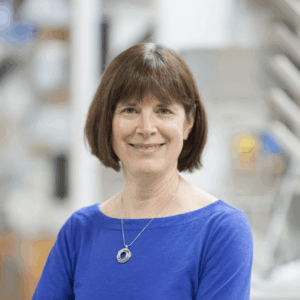
Professor, Cell and Developmental Biology, University of Pennsylvania
Candidacy Statement
It would be an honor to serve the genetics community as Treasurer of the Genetics Society of America (GSA) Board of Directors. When I was a beginning graduate student, the first scientific society that I joined was GSA , and I have been a member ever since! The discipline of genetics has been a cornerstone of my research throughout my career. I trained with preeminent geneticists, Gerald Rubin for my graduate studies studying P elements and sevenless in Drosophila at the University of California, Berkeley, andChristiane Nüsslein-Volhard, Nobel prize winning geneticist, for my postdoc at the Max Planck Institute in Germany. As a postdoc I moved to study zebrafish, a new model organism at the time, which had the promise of the genetics that I so loved in Drosophila, but in a vertebrate. There, I embarked on establishing the tools and performing a collaborative, large-scale zygotic mutant screen to identify key developmental genes, which contributed to launching the zebrafish field. In my lab at the University of Pennsylvania (UPenn), we have continued forward genetics and genomic approaches in the zebrafish.
I am a teacher of genetics, promote genetics research, and have worked with GSA for my entire career. I have lectured on genetic principles at the Woods Hole MBL Zebrafish course for more than 20 years and in a genetics graduate course at UPenn for nine years. I am an associate editor at the PLOS Genetics journal. I had the pleasure of co-organizing The Allied Genetics Conference (TAGC) 2020 and a session at TAGC 2024. I also worked closely with GSA in organizing multiple zebrafish conferences. I served twice on the GSA Nominations Committee, and as Vice President of the International Zebrafish Society, I worked closely with GSA on their initiative to support model organism databases. GSA plays so many important roles beyond these as well.
I am committed to training the next generation of scientists and would bring to GSA my experience in outreach, mentoring, and teaching. I work closely with the UPenn BioEYES, the 2018 recipient of the GSA Elizabeth W. Jones Award for Excellence in Education, which brings hands-on genetics education to K-12 classrooms. I am active in training graduate students including as chair of a UPenn graduate program for six years. As Assistant Dean for Junior Faculty Advancement, I support assistant professors in advancing their independent research careers.
GSA is a wonderful advocate of genetics in all its forms and for geneticists at all levels. If elected, I would be actively engaged as a steward of GSA, work to expand its impact, and serve the genetics community in all ways possible.
Education
PhD in Biochemistry (1989) – University of California, Berkeley
BS in Biochemistry (1984) – University of Wisconsin–Madison
Research Interests
My lab uses the zebrafish to investigate fundamental processes in embryonic patterning and the maternal regulation of development. We study all aspects of Bone Morphogenetic Protein (BMP) signaling in early embryonic axis patterning, from the signaling mechanism to its spatiotemporal role in specifying dorsal-ventral (DV) cell fates as a morphogen. We discovered that only a BMP2/7 heterodimer signals in DV patterning and that the two type I classes of receptor it binds are subfunctionalized with regard to their kinase functions. We have quantitated with high precision phosphorylated Smad5 levels in all nuclei of the early embryo and used it to discern models of morphogen gradient formation through computational modeling. In a translational project, we use our BMP signaling assays to unravel the altered signaling mechanism of dominant human disease gene mutations in a type I BMP receptor.
My lab has performed a forward genetic maternal-effect mutagenesis screen in the zebrafish to identify genetic entry points to the maternal control of vertebrate development. We have isolated a multitude of maternal-effect mutations and cloned many of the mutant genes using various omics and positional cloning approaches. We identified a host of novel mutant phenotypes, many we never imagined, revealing novel genes and many interesting new functions for other genes. This genetic screen has led to the discovery of key regulators of egg and oocyte polarity, cell cleavage, and early embryonic patterning and morphogenesis.
Director Candidates
Monica Colaiacovo
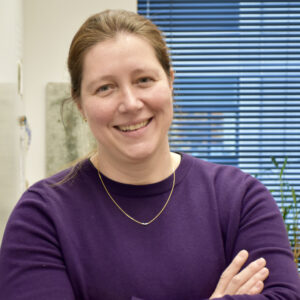
Professor, Genetics, Harvard Medical School
Candidacy Statement
I am honored to have the chance to serve the Genetics Society of America (GSA) as a member of the Board of Directors to contribute to the support and advocacy it provides our scientific community. I firmly believe that GSA plays an instrumental role in advancing the impact and importance of foundational, translational, and applied genetic and genomic research. It achieves this through its support of scientific publications, meetings, educational activities, and training opportunities for scientists at different career stages and from all different communities including our international genetics community. GSA also plays a key role in engaging and training its members in advocating for stable and continued research support, which is increasingly under threat. I hope to work with GSA in expanding strategies to support genetics research, education, and training opportunities by removing barriers that often preclude these goals. As a GSA Board of Directors member, I will work to reduce financial barriers for trainees, facilitate networking opportunities throughout the genetics community, expand mentoring opportunities for trainees and early career investigators as well as journal reach/audience, and provide more resources for science writing and communication.
My first introduction to a scientific journal was through reading GENETICS when I started doing research as an undergraduate in Brazil. The studies published in GENETICS taught me an enormous amount about experimental design, scientific rigor and writing, and made me aspire to develop the type of research I was reading. One of my proudest accomplishments was publishing work I developed for my PhD, and once again as a postdoctoral fellow, in GENETICS. I was thrilled to later serve the journal as an Associate Editor from 2009 to 2018. I continue to publish in GENETICS and view it as a premier journal for fundamental studies in genetics and genomics. I have also had the opportunity to serve as Co-chair in 2013 and in the scientific organizing committee in 2015 for the International C. elegans meeting, in the GSA Board of Directors Nominating Committee in 2017, the GSA Awards Committee from 2018 to 2020, as a moderator for a GSA panel discussion on grants and funding in 2021, and in the 2025 GSA virtual Capitol Hill Day speaking with staff for various local Senate and House representatives. Through every one of these opportunities, I have been in awe of the remarkable work that is done by the GSA Staff to support our genetics community and the drive and contributions made by all the scientists that volunteer with our Society. I would be honored to join the team behind this work to help make a real difference in our scientific community.
Finally, I am also deeply committed to training and education. I am a scientist today in large part because I was fortunate to have great mentors and advocates along the way. I support training for scientists at all different career stages and have had the opportunity to mentor 34 high school and undergraduate students, 10 graduate students (three co-mentored), eight visiting graduate students, and 20 postdoctoral fellows. I was honored to receive an award for mentoring granted by the graduate students in the Biological and Biomedical Sciences (BBS) PhD program at Harvard Medical School and have served as Associate Director for the BBS umbrella program for the past five years, as a Program Advisor for 11 years supporting our first-year graduate students, and have continuously served as a member of committees aiming to advance training and develop academic curriculum. I hope to apply these combined experiences to contribute to GSA on the Board of Directors so we can continue to strengthen and expand the impact we have on training, education, service, and research.
Education
PhD in Molecular and Cell Biology (1999) – Brandeis University
BS in Biology (1992) – Saint Ursula University
Research Interests
My laboratory investigates mechanisms promoting accurate chromosome segregation during meiosis and how environmental exposures to endocrine disrupting chemicals (EDCs) may perturb them. Our studies are critical for understanding the causes of miscarriages, stillbirths, and genetic disorders such as Down syndrome in humans. Our work in the nematode Caenorhabditis elegans has provided molecular and mechanistic insights into several essential steps of meiosis, including the regulation of chromosome synapsis, sister chromatid cohesion, and DNA double-strand break repair (DSBR). Ongoing studies in the lab combine genetic, cytological, and biochemical approaches to understand how DSB and crossover recombination frequency and distribution are linked to chromatin regulation to achieve accurate chromosome segregation and avoid the formation of aneuploid gametes. In parallel, we have been using many of the genetic strategies and reagents we develop for studies of meiosis to gain mechanistic insights into how EDCs such as plasticizers and insecticides impact germline maintenance and reproductive biology in C. elegans, studies which are highly predictive of mammalian reproductive toxicity. We are currently investigating how EDC exposure can exhibit sexually dimorphic effects and how germline exposure to mixtures of chemicals may affect the formation of egg and sperm.
David Fay
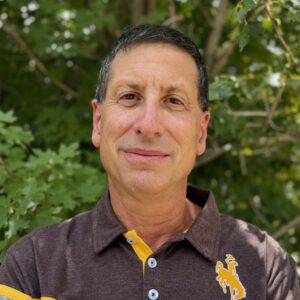
Professor, Molecular Biology, University of Wyoming
Candidacy Statement
This would have been easier to write a year ago. But a lot has changed, and the Genetics Society of America (GSA), along with other scientific organizations, must meet this moment as best we can. How we do this effectively, while staying true to our core mission, is admittedly an open question. What is clear is that public trust in science has eroded and that many now hold a dim view of academic institutions and higher education. Regardless of the reasons, I believe we must work together to counter this narrative, engage the public directly, and tell our own story. This means explaining in concrete terms how scientific research works and why it matters to our society. Earlier in my career, I spoke to American Cancer Society volunteers throughout Wyoming to explain my research and to justify the ACS’s investment in my lab. My outreach included visits to Wyoming’s capital and to DC and led to conversations with elected officials. This summer, motivated by The McClintock Letters Initiative, I wrote an op-ed on the importance of federal support for scientific research. This was published in several Wyoming newspapers and led to an interview on Wyoming Public Radio. More recently, I met with a staff member for Senator Barasso, an MD who has publicly advocated for vaccines. I acknowledge that these are small steps, but I believe that collective actions along these lines can lead to meaningful changes.
I also believe that to be an effective proponent of science requires a healthy dose of skepticism and an acknowledgment of our limitations. For me, this has often taken the form of satire—through articles, social media posts, and even a comedy show at TAGC 2024; the shortcomings of our funding, publishing, and professional advancement practices make for especially easy targets. But there are also deeper and more complex issues in our field and in academia that require honest and open discourse. Still, it is hard to think of another human endeavor that so consistently strives to obtain an unbiased understanding of the world—one that is willing to question itself, to correct its mistakes, and to keep moving toward objective truths and discoveries that improve lives. This is the message we need to convey.
Here’s some additional information about me. I’ve led a productive and externally funded lab at the University of Wyoming (UW) for more than 24 years with current support through 2030. For a decade I served as an Associate and then Senior Editor for G3: Genes|Genomes|Genetics, and I have contributed to GSA activities through service on the Publications Committee, the search committee for a Senior Editor at G3, and the GENETICS Senior Editor review committee. I have reviewed scores of National Institutes of Health grants across a wide range of panels and funding mechanisms. I am deeply committed to graduate education: I founded an umbrella PhD program at UW and directed it for 10 years, developed a semester-long cornerstone class for graduate students, and more recently, co-created a scientific mentoring and advice platform with a former undergraduate from my lab, Katherine Rogers (helpimascientist.com). And of course I love mentoring members of my lab. I enjoy delving deeply into new areas of science, after which I sometimes feel compelled to write lengthy guides based on what I’ve learned (e.g., genetics and statistics). My current obsession is protein modeling, and I’ve run several workshops in this area. For the past decade, I’ve co-administered the NIH Wyoming INBRE, a large program project grant that supports biomedical research, student training, and infrastructure development at UW and Wyoming’s seven community colleges. In my new role as the PD/PI of the WY-INBRE I will also be responsible for broader advocacy including engagement with members of Congress. I strongly believe that everyone deserves opportunities to advance themselves and that scientific talent often emerges from unexpected places. Finally, I remain at heart a geneticist who loves unbiased screens! While I recognize that genetics alone cannot answer every question, I believe it provides an unparalleled starting point and a solid foundation for discovering something truly new.
Education
PhD in Molecular Biophysics and Biochemistry (1995) – Yale University
BS in Chemistry (1988) – Tufts University
Research Interests
The broad goal of my research has been to uncover novel mechanisms and genes controlling conserved biological processes at the molecular, cellular, and organismal levels. Although the specific focus of my work has shifted over time, an underlying theme has been the use of powerful discovery-based molecular-genetic approaches. This started with yeast cell cycle studies as a PhD student and shifted to C. elegans development as a postdoc and PI. Our recent work has focused on mechanisms governing the worm molting process, membrane trafficking, and transcriptional control by syncytial cells.
Tânia Reis
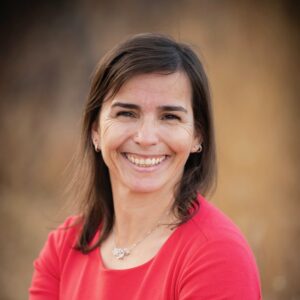
Associate Professor, Department of Medicine, Division of Endocrinology, Metabolism and Diabetes, University of Colorado Anschutz
Candidacy Statement
It is a great honor to be considered for the Genetics Society of America (GSA) Board of Directors. I have been a GSA member for over 20 years since I was a PhD student in Bruce Edgar’s lab at the Fred Hutchinson Cancer Research Center. There, I first experienced the power of the fly as a genetic model system. For my postdoctoral work in Iswar Hariharan’s lab at University of California Berkeley, I chose to develop Drosophila larvae as a model to study the genetics of obesity. In 2011, I established my own research group at the University of Colorado School of Medicine where I am now an Associate Professor in the Division of Endocrinology, Metabolism and Diabetes in the Department of Medicine. The goal of our research is to identify genetic and neuronal pathways required for metabolic homeostasis using Drosophila melanogaster. In 2023 I was awarded an NIH Director’s Pioneer Award to investigate roles of metabolism on neuronal plasticity. The fly community was crucial in motivating and supporting me during this critical time in my career. My identity as a scientist cannot be uncoupled from my identities as a mentor, lifelong mentee, and member of our scientific community as a whole. Throughout my career, the Annual Drosophila Research Conference (and three TAGCs) have been a cornerstone for collaborations and interactions that are central in my scientific process (I think I have only missed two or three in the last 25 years). I’ve had the opportunity to grow in all facets; not just via the scientific talks or the late nights at the bar, but also via the corridor conversations with the new mentees I’ve just met or the tireless staff that checks in to ask “how is it going and what could be done better next year?” GSA has contributed immensely to who I am today and I want to continue to pay it forward in any way I can.
Through the years I have presented at GSA Conferences, organized workshops (2014-2019), judged posters, chaired sessions, and participated in panel discussions. I also look for new ways to support our community and was the inaugural GSA Chair for Childcare at Conferences (chair from 2019-2022, with an outgoing chair advisory role from 2023-2024). I served on the Fly Board from 2020 to 2024 and am currently a member of the Larry Sandler Memorial Award selection committee and the GSA Equity and Inclusion Committee (E&I). I am eager to bring my passion to support this community and my knowledge and skills to the Board. Outside of GSA, I also contributed to the greater fly community since 2018 as a lecturer at the Cold Spring Harbor Lab’s Drosophila Neurobiology Summer Course, and from 2022 to 2025 as a Course Co-director. As an immigrant female scientist and mother of two kids including a young non-binary child, I continue to devote significant effort in training. I focus on using data-driven approaches to make science accessible and interventions that set everyone on a path to success. Within GSA, I want to facilitate widespread incorporation of the E&I Committee’s recommendations on how to improve access and transparency for committee compositions and conference organization to equalize opportunities for service participation and scientific presentations. I also want to promote efforts that increase accessibility practices to facilitate participation at meetings, on committees and in other roles for community members with visible and invisible disabilities. Having traveled a less common path, it is my goal to advocate and work towards removing barriers that prevent scientists from doing their best research.
Right now, community and education are more important than ever. The value of science and scientists is regularly questioned in the largest arenas, and we find ourselves having to prove our worth and justify our search for knowledge. I want to help us join efforts to support and amplify what is working for our GSA community, while remembering that in times of crisis it is our obligation to support the more vulnerable at any career stage and at any institution. It would be my privilege to represent you as a Director on the GSA Board.
Education
PhD in Molecular and Cellular Biology (2005) – Fred Hutchinson Cancer Research Center
BS in Biochemistry (1998) – Universidade Porto
Research Interests
The ability to maintain homeostasis is a defining feature of life. At the cellular level we understand well the feedback mechanisms that balance energy intake with output, storage with expenditure. For multicellular organisms with distinct tissues performing specialized functions and complex behaviors like food choice, much less is known. Our inability to prevent the global rise in human obesity illustrates how much we must learn. Forty to 70% of human obesity is hereditary, but we understand only about 5% of these genetic predispositions.
The research goals of the Reis lab are to identify mechanisms of organismal energy balance acting at the tissue, cellular, and molecular levels. Using Drosophila melanogaster as a model system, we want to understand how these pathways maintain homeostasis—or, when appropriate, allow energy balance setpoints to shift—when confronted with intrinsic (sex differences, demands of neuronal function) and extrinsic challenges (food availability and diet quality). We aim to derive a deep understanding of metabolic changes when gene function is altered. Through these and other studies, we have found links between diet, development, differences between the sexes, and neuronal function that provide us with several parallel research directions. We continue to further expand on these discoveries with the goal of understanding how biological homeostatic mechanisms are established and how their interconnectivity allows biological plasticity.
Robert Unckless
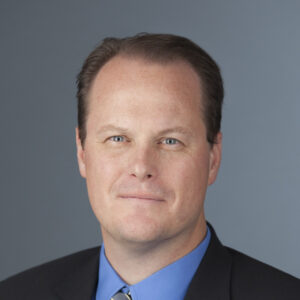
Associate Professor, Molecular Biosciences, University of Kansas
Candidacy Statement
I attended my first Drosophila meeting in Washington, DC in 2010. I was a senior graduate student in a lab where most trainees attended more evolution-focused meetings. As I finished my PhD, I knew that I wanted to focus more on evolutionary (and eventually molecular) genetics, so I attended the meeting to search for postdoc opportunities and meet potential mentors. I initially found the meeting daunting: hundreds of researchers spanning an incredible breadth of subjects and I knew almost nobody. However, almost immediately, I was welcomed and made connections with other scientists who I still communicate, consult, and collaborate with today. The fly meeting quickly became my priority meeting, and I’ve only missed one since—for the birth of my daughter. The Genetics Society of America (GSA) has fostered a supportive, diverse, and nurturing community. For me, this started with the Annual Drosophila Research Conference, but I’ve witnessed similar dynamics with the communities associated with other GSA groups including those associated with the former TAGC, with the Population, Evolutionary, and Quantitative Genetics Conference (PEQG), and the Worm meeting. I started a faculty position at the University of Kansas in 2016; currently I am an Associate Professor in the Department of Molecular Biosciences and founding Director of the KU Center for Genomics.
I am running for a position on the GSA Board of Directors because I am now at a point in my career where I feel that I have the experience and energy to give back to the community that meant so much as I was starting my professional journey. I hope to contribute in several ways but will highlight three.
First, GSA has been a leader in working to create broader participation in the scientific community. These efforts include direct approaches like including dedicated talks or sessions at conferences and facilitating community building through lunches and mixers. They also include indirect approaches that are just geared toward taking the mystery out of training and careers in genetics, including initiatives like the GSA Journals Peer Review Training Program, mentoring programs at conferences, and mentoring for new faculty. Given the current climate surrounding broadening participation in the U.S. and globally, GSA can continue to lead the charge to broaden participation in science—especially as academic institutions are increasingly prohibited from engaging in these efforts. I will work to keep this as a major priority for GSA.
Second, the pace of technical and computational advancement in genetics and genomics research is dizzying and it has become difficult to keep up with the newest approaches. I will work with GSA to provide opportunities for researchers to keep up with these new technologies through career development programs, myriad online events, and by exploring the possibility of offering more workshops during GSA Conferences. As the lead organizer for the 2026 PEQG meeting, we are looking at the possibility of offering workshops in topics such as ancestral reconstruction graphs, population genetic simulation, and pangenome analysis.
Finally, I will work with editors at G3: Genes|Genomes|Genetics and GENETICS to ensure that these journals remain the flagship journals in the field by facilitating special issues, anticipating and reacting to changes in publishing models, and ensuring connections between meeting attendees and the journal so that GSA members’ best work continues to be published in the GSA Journals.
The GSA Board continues to need strong leaders who are community-oriented, strategic and creative thinkers, and aware of the financial realities of the Society and the field. I believe that my leadership experiences make me a good candidate for the position: founding and serving as Director of the University of Kansas Center for Genomics, involvement in meeting planning—including PEQG 2026, and involvement in my department’s Strategic Planning Committee.
Education
PhD in Biology (2011) – University of Rochester
MS in Biology (2008) – University of Rochester
MS in Biology (2005) – State University of New York
MS in Science Education (1999) – Cornell University
BS in Education (1997) – Cornell University
Research Interests
Organisms face a constant barrage of challenges from both external (competitors, parasites, pathogens, etc.) and internal (selfish genetic elements) sources. My lab aims to understand the genetic, genomic and evolutionary causes and consequences of these challenges. We mostly focus on Drosophila, using both the genetic workhorse, D. melanogaster, and a more diverse set of species with specific and interesting biological challenges. Our work spans ecological to genomic to molecular genetic approaches and often includes population genetic theory. The current projects in the lab include dissecting the genetic basis of sex-ratio meiotic drive, studying divergence in immune defense between species, and developing a model to study host/DNA virus interaction. We often target GENETICS and G3: Genes|Genomes|Genetics for publication of our work. Our work has been funded by both the National Science Foundation and the National Institutes of Health.
Chris Hittinger
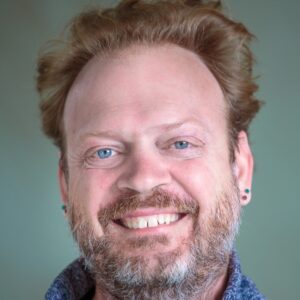
Professor, Genetics, University of Wisconsin–Madison
Candidacy Statement
It is an honor to be nominated to represent our community on the Board of Directors of the Genetics Society of America (GSA). My research is interdisciplinary, but I consider GSA my “home society” for many reasons. I have belonged to and been active in GSA for 22 years, the longest I have been a member of any scientific society. I attend GSA Conferences whenever I can. I frequently review for and publish in the GSA Journals, especially G3: Genes|Genomes|Genetics, which is one of my favorite journals. My trainees have been the recipients of multiple generous GSA travel awards. I received my PhD and was recently promoted to full professor by the Department of Genetics at the University of Wisconsin-Madison, which is the oldest genetics department in the nation and has provided many leaders to GSA. I would count myself lucky to be among them.
Now, more than ever, we need strong and steady leadership for our discipline and for science more generally. In 2031, GSA will turn 100 years old, and both the scientific and broader community need it to not just survive, but to thrive in its second century. Curiosity and hypothesis-driven research into basic and fundamental science will continue to be a hallmark of our discipline that leads to unexpected discoveries and true innovation. At the same time, we need to do a better job communicating the concrete benefits to the whole of society as our science works to enhance our prosperity, health, and education. I am excited by the challenge of working with GSA to preserve and defend genetics for the benefit of humanity.
Education
PhD in Genetics (2007) – University of Wisconsin–Madison
BS in Biology and Chemistry (2001) – Southeast Missouri State University
Research Interests
The Hittinger Lab uses yeast carbon metabolism as a model for basic bioenergy, biomedical, and evolutionary research. Our research interests and integrated approaches are at the intersection of biodiversity; biochemistry; biotechnology; and functional, ecological, and evolutionary genomics. Ongoing projects are focused on understanding the origin and evolution of aerobic fermentation, yeast ecology and biodiversity, genetic variation in natural and industrial yeasts, genome engineering and synthetic biology, and the metabolism of alternative carbon sources (e.g., galactose, maltose, xylose) that may have bioenergy and brewing applications.
Jeffrey Ross-Ibarra
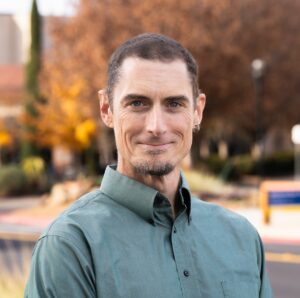
Professor, Department of Evolution and Ecology, University of California, Davis
Candidacy Statement
I am excited for the opportunity to serve the Genetics Society of America (GSA) Board of Directors. I have long been involved in GSA, from helping organize and chairing the Population, Evolutionary, and Quantitative Genetics Conference (PEQG), to serving for a decade as Associate and Senior Editor for G3: Genes|Genomes|Genetics, where I worked to help shape policies, build the editorial board, and increase opportunities for early career researchers. PEQG remains my favorite conference, and GENETICS and G3 are my preferred venues for publication, with nearly 20 of my papers appearing in these journals.
I have considerable experience working with other scientific societies, having served on the board of directors of the Maize Genetics Cooperative and on the executive council for the Society for Molecular Biology and Evolution. In both of these roles I worked to further diversity and equity policies, helping craft codes of conduct and serving on separate DEI committees. I have also organized other conferences, including the 24-hour International Plant Genomes Online in 2022 and more recently the International Forum on Maize Biology. Additional relevant experience includes five years as vice chair of a department of nearly 70 faculty, director of the University of California, Davis HPC Facility, and serving on the editorial board of a number of journals.
If elected to the Board of Directors, I will strive not only to continue GSA’s history of excellence, but build on my experience in other societies to expand access to the GSA Journals and GSA Conferences and strengthen the Society’s efforts in training and providing opportunities to early career researchers. As a plant geneticist, I would also work to improve interaction and collaboration with plant genetics communities, exploring options such as additional special journal issues or new conference opportunities.
I’m honored to have been nominated for this role, and look forward to working with GSA.
Education
PhD in Genetics (2006) – University of Georgia
MS in Botany (2000) – University of California, Riverside
BA in Botany (1998) – University of California, Riverside
Research Interests
My research uses maize and its wild relatives as a model system to address broad questions in evolutionary genomics. We study the population and quantitative genetics of adaptation using wild collections, modern breeding lines, and traditional varieties that have adapted to diverse environments worldwide. Leveraging the wealth of genetic resources available in maize, we examine genome evolution—from the impacts of linked selection to the dynamics of selfish genetic elements. Given maize’s deep history as a domesticate, we also investigate how human activities have shaped its dispersal and evolution. While our primary tool is computational genomics, we complement this with field evaluations, crosses, and wet-lab analyses. Our work is highly collaborative, involving breeders, geneticists, ecologists, theoreticians, and archaeologists.

